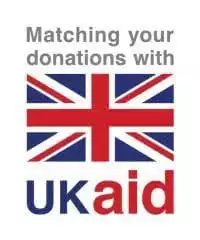Game, Set & Aid Match
Securing UK Aid Match from DfID is a coveted win for international charities. It comes with the potential to lever millions of pounds from the UK public during a 3-month appeal period with donations matched by the UK government. It also helps to raise the profile of various causes via newly forged communications partners.
However, it is not without its quirks which exist at every stage of the process… the application, the appeal set up and the subsequent delivery. These quirks need to be considered and addressed upfront as part of the initial decision-making process when determining whether to submit a bid. Failure to do so can result in a difficult ride even if your charity is ultimately successful.
The two-stage application process adopted by DfID is understandably rigorous due to the use of public funds. That aside, it takes no account of the size of the Aid Match Appeal that a charity thinks it can realistically deliver. There is no fast-track or slimmed down process for charities who are hoping to raise £500,000 versus those that are looking to raise £5 million.
Minimum publicity requirement is far from minimal
The detailed development requirements for both the programme element and the communications plan are the same. Every successful applicant is required to deliver a minimum of 400,000 quality opportunities for the UK public to view the positive impact of international aid during their appeal irrespective of envisaged size.
Exhausting experience
If your application is successful, this will inevitably come with a frenzy of activity during the appeal set up period. Whilst exciting this can also be an exhausting experience for any charity that does not have a deep understanding of DfID. It can be akin to a ‘shot gun’ wedding with a need to rapidly develop a working relationship with communications counterparts in DfID who don’t know you; the operating constraints you have and vice versa.
As the charity, your legitimate need will be to use Aid Match as a vehicle to raise funds. For DfID, the desire is to show the positive impact of international aid. UK Aid Match is essentially a marketing programme for DfID which needs to be reconciled with the charities’ need to raise funds. If not managed carefully, the genuine urgency for people to support an international cause can be lost in the subsequent appeal period due to an inequity between showing the need for the charity’s work and purely sharing the impact.

UK Aid Match brings charities, the British public and the UK government together collectively to change the lives of some of the world’s poorest and most vulnerable people.
When an Aid Match bid is successful, it doesn’t come with a cash prize or any guarantee of funding. At point of notification, the charity has secured a grand total of £0 for its cause. To generate significant sums from the UK public, it is necessary to have the support of exceptionally strong communications partners such as national broadcast and multimedia companies or major retailers. For many charities, these partners simply don’t exist. Whilst they can readily secure the requisite ‘opportunities to view’, their appeals do not generate large volumes of public donations.
Advertisement
Where will the public funding come from?
Where this is the case, DfID UK Aid Match really becomes a high value fundraising opportunity with most of the appeal income having to come from a much smaller number of major donors and private trusts. If a charity recognises that this scenario is likely to apply to them then they need to plan and resource their appeal accordingly. Putting all the efforts on external communications to the wider public simply won’t bring in the necessary level of donations… a practical illustration of Pareto’s principle.
Securing 5 million opportunities to view the positive impact of international aid may well be fantastic exposure for the UK government and a great awareness raising tool but it will not necessarily result in significant funding for your charity unless you have the right communications partner.
Charities need to undertake an internal analysis of their capacities and capabilities to deliver before committing to the Aid Match process. It’s not as straightforward as ‘game, set and aid match!’
Mark Atkinson is Charity Consultant at VCSchange





